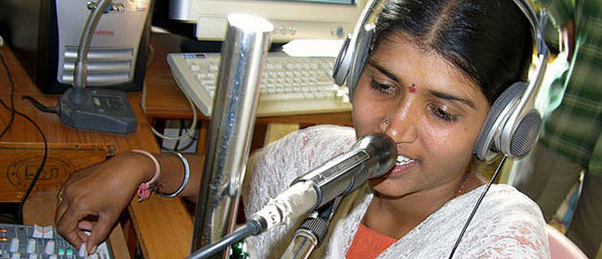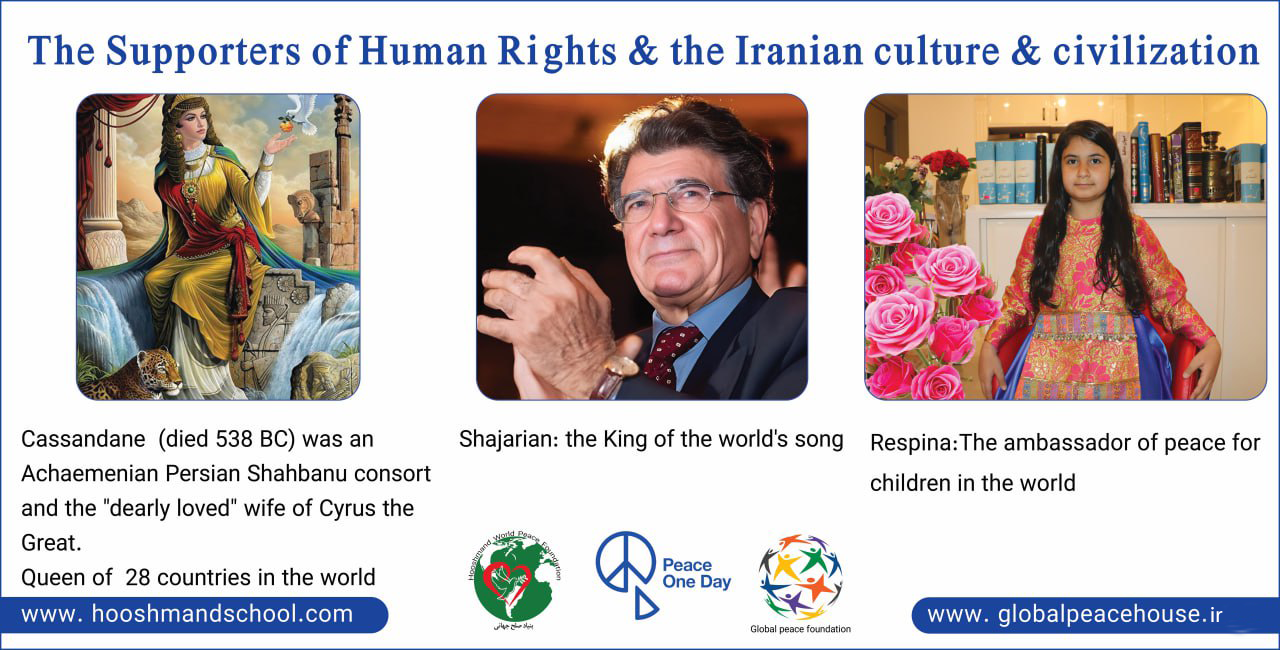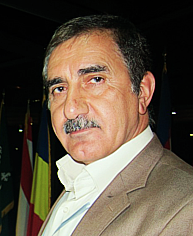 Sadeghi & IFAP
Sadeghi & IFAP
Mohammad Rafia Sadeghi has been selected as the member of Information for All National Committee of Iranian National Commission for UNESCO by Dr..Mostafa Moeen the Minister of science,Research and Technology and the head of UNESCO National commission in IRAN in 18/03/2002
Information for All Programme (IFAP)
An intergovernmental Programme of UNESCO
The Information for All Programme is the only intergovernmental programme exclusively dedicated to promoting universal access to information and knowledge for development. This is a key plank in building Knowledge Societies.
The uniqueness of this mandate and its intergovernmental nature invest the Intergovernmental Council for the Information for All Programme with the authority to speak on strategic priorities and to lobby and create awareness about issues pertaining to the use of information and ICT for development at the international level.>> More 
Information for All Programme (IFAP)
An intergovernmental Programme of UNESCO
About IFAP
The Information for All Programme is an intergovernmental programme, created in 2000. Through IFAP, Governments of the world have pledged to harness the new opportunities of the information age to create equitable societies through better access to information.
The last decade has witnessed technological development at a scale and speed unprecedented in the history of humankind. The challenge the world faces is to ensure equitable access for all people to seize these new opportunities. Information is central to development. Information is essential for survival and sustainability. Information is the pathway to understanding and peace. The Information for All Programme is UNESCO's response to the challenges and opportunities of the Information Society.
The Information for All Programme is closely integrated with UNESCO's regular programme, especially in the area of communication and information. IFAP works closely with other intergovernmental organizations and international NGOs, particularly those with expertise in information management and preservation, for example the International Federation of Library Associations and Institutions (IFLA) and the International Council on Archives (ICA).
At the beginning of 2006, more than 50 IFAP National Committees exist, providing a focus at the country level as well as an opportunity to interpret and mobilize the IFAP vision for local communities.
Communication and Information
Information for All Programme (IFAP)
Numerous activities have been carried out in the past by UNESCO with a view to defining its place in the information society, particularly within the framework of the former General Information Programme (PGI) and the Intergovernmental Informatics Programme (IIP).
The information revolution has resulted in an overlap of the two programmes which have been increasingly concentrating their activities in two main areas: firstly on content for the information society, and secondly on actions necessary to build "infostructure" for this evolving society through training, the establishment of information policies and the promotion of networking.
As of 1 January 2001, the Information for All Programme has been replaced the General information Programme and the Intergovernmental informatics Programme, according to Decision 3.6.1 taken at the 160th session of UNESCO's Executive Board.
Decisions leading to the creation of the Information for All Programme:
1997
29th General Conference Resolution invites the Director-General "to convene the statutory meetings of the PGI Intergovernmental Council and the IIP Intergovernmental Committee, as well as those of their Bureaux, as joint meetings, in order to release funds for concrete activities in MemberStates and to establish the synergies necessary to adapt UNESCO's activities to the challenges of the information highways, thus enabling the 30th session of the General Conference to take a well-informed decision about a possible merger of these two intergovernmental programmes or any other appropriate solution." (Resolution 29 C/Resolution 28 (Paragraph 2.C.(f)).
1999
30th General Conference approves Resolution 36 "New programme merging the General Information Programme (PGI) and the Intergovernmental Informatics Programme (IIP)"(30 C/Resolution 36)
2000
60th session of the Executives Board adopts decisions 3.6.1 on the "Replacement of the General Information Programme (PGI) and the Intergovernmental Informatics Programme (IIP) by a new intergovernmental programme" (160 EX/Decision 3.6.1)
Objectives
A central concern of UNESCO is the disparity between developed and developing countries. Countries are often characterised as "north" and "south" depending on their economic situations, but in recent years, a new divide between them has emerged - the digital divide.
IFAP exists to be an advocate for all people on the wrong side of the information divide, whether they be in developed or developing countries. Of special concern are the needs of women, youth and the elderly, as well as persons with disabilities.
The Information for All Programme seeks to:
• promote international reflection and debate on the ethical, legal and societal challenges of the information society;
• promote and widen access to information in the public domain through the organization, digitization and preservation of information;
• support training, continuing education and lifelong learning in the fields of communication, information and informatics;
• support the production of local content and foster the availability of indigenous knowledge through basic literacy and ICT literacy training;
• promote the use of international standards and best practices in communication, information and informatics in UNESCO's fields of competence; and
• promote information and knowledge networking at local, national, regional and international levels.
Intergovernmental Council for IFAP
The Programme is guided in its planning and implementation by an Intergovernmental Council comprising 26 UNESCO Member States that are elected by UNESCO’s General Conference. The functioning of the Council is financed by UNESCO’s regular budget.
Functions:
Within the framework of the decisions of the General Conference concerning the Information for All Programme, the Council shall guide its planning and implementation. This shall, in particular, include:
• considering proposals on the development and adaptation of the Information for All Programme;
• recommending the broad lines of action that the Information for All Programme could take;
• reviewing and assessing achievements and defining the basic areas requiring increased international co-operation;
• promoting participation of Member States in the Information for All Programme;
• supporting all fund raising efforts for the implementation of the Information for All Programme.
Composition:
Member States elected from 34th to end of 36th session of the General Conference (2007-2011): Member States elected from 35th to end of 37th session of the General Conference (2009-2013):
Austria China
Brazil Colombia
Côte d'Ivoire Ethiopia
France Kuwait
Grenada Latvia
Israel Madagascar
Kenya Mali
Latvia Philippines
Libya Russian Federation
Nigeria Ukraine
Russian Federation United Arab Emirates
Venezuela
Viet Nam
Bureau of the Intergovernmental Council for IFAP
The IFAP Bureau consists of eight Member States nominated by the governing Council. It meets twice a year to appraise, select and approve projects as well as to hold thematic debates on issues of importance for the Programme.
The Bureau is composed of a Chairperson, three Vice-Chairpersons, three other members and a Rapporteur:
Chairperson of the IFAP Bureau
Evgeny Kuzmin, Chairman
Evgeny Kuzmin (Russian Federation)
kuzmin(at)ifapcom.ru
Evgeny Kuzmin currently holds the position of Chair of the Russian Committee for the Information for All Programme. He is also member of the Russian National Commission for UNESCO and President of the Interregional Centre for Library Cooperation.
Mr Kuzmin served as Member of the Intergovernmental Council of the Information for All Programme and of the International Advisory Committee of the Memory of the World Programme. He also worked as Head of the Department of Libraries and Archives of the Russian Ministry of Culture.


















